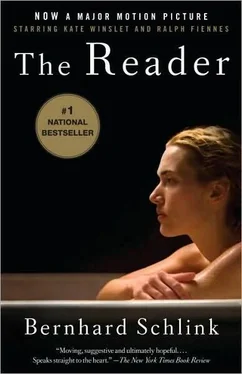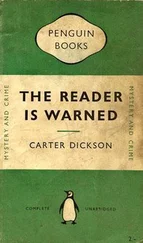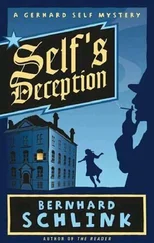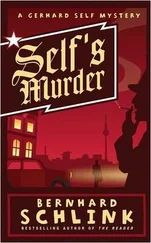I ALWAYS EXPERIENCED the beginning of a new school year as a watershed. Moving up from tenth to eleventh grade was a major one. My class was disbanded among the three other parallel classes. Quite a few students had failed to make the grade, so four small classes were combined into three larger ones.
My high school traditionally had taken only boys. When girls began to be accepted, there were so few of them to begin with that they were not divided equally among the parallel classes, but were assigned to a single class, then later to a second and a third, until they made up a third of each class. There were not enough girls in my year for any to be assigned to my former class. We were the fourth parallel class, and all boys, which is why we were the ones to be disbanded and reassigned, and not one of the other classes.
We didn’t find out about it until school began. The principal summoned us into a classroom and informed us about the why and how of our reassignment. Along with six others, I crossed the empty halls to the new classroom. We got the seats that were left over; mine was in the second row. They were individual seats, but in pairs, divided into three rows. I was in the middle row. On my left I had a classmate from my old class, Rudolf Bargen, a heavyset, calm, dependable chess and hockey player with whom I hadn’t ever spent any time in my old class, but who soon became a good friend. On my right, across the aisle, were the girls.
My neighbor was Sophie. Brown hair, brown eyes, brown summer skin, with tiny golden hairs on her bare arms. After I’d sat down and looked around, she smiled at me.
I smiled back. I felt good, I was excited about a new start in a new class, and the girls. I had observed my mates in tenth grade: whether they had girls in their class or not, they were afraid of them, or kept out of their way, or showed off to them, or worshipped them. I knew my way around women, and could be comfortable and open in a friendly way. The girls liked that. I would get along with them well in the new class, which meant I’d get along with the boys too.
Does everyone feel this way? When I was young, I was perpetually overconfident or insecure. Either I felt completely useless, unattractive, and worthless, or that I was pretty much a success, and everything I did was bound to succeed. When I was confident, I could overcome the hardest challenges. But all it took was the smallest setback for me to be sure that I was utterly worthless. Regaining my self-confidence had nothing to do with success; every goal I set myself, every recognition I craved made anything I actually did seem paltry by comparison, and whether I experienced it as a failure or triumph was utterly dependent on my mood. With Hanna things felt good for weeks-in spite of our fights, in spite of the fact that she pushed me away again and again, and again and again I crawled to her. And so summer in the new class began well.
I can still see the classroom: right front, the door, along the right-hand wall the board with the clothes hooks, on the left a row of windows looking onto the Heiligenberg and-when we stood next to the glass at recess-down at the streets, the river and the meadows on the opposite bank; in front, the blackboard, the stands for maps and diagrams, and the teacher’s desk and chair on a foot-high platform. The walls had yellow oil paint on them to about head height, and above that, white; and from the ceiling hung two milky glass globes. There was not one superfluous thing in the room: no pictures, no plants, no extra chair, no cupboard with forgotten books and notebooks and colored chalk. When your eyes wandered, they wandered to what was outside the window, or to whoever was sitting next to you. When Sophie saw me looking at her, she turned and smiled at me.
“Berg, Sophia may be a Greek name, but that is no reason for you to study your neighbor in a Greek lesson. Translate!”
We were translating the Odyssey. I had read it in German, loved it, and love it to this day. When it was my turn, it took me only seconds to find my place and translate. After the teacher had stopped teasing me about Sophie and the class had stopped laughing, it was something else that made me stutter. Nausicaa, white-armed and virginal, who in body and features resembled the immortals-should I imagine her as Hanna or as Sophie? It had to be one of the two.
W HEN AN airplane's engines fail, it is not the end of the flight. Airplanes don’t fall out of the sky like stones. They glide on, the enormous multi-engined passenger jets, for thirty, forty-five minutes, only to smash themselves up when they attempt a landing. The passengers don’t notice a thing. Flying feels the same whether the engines are working or not. It’s quieter, but only slightly: the wind drowns out the engines as it buffets the tail and wings. At some point, the earth or sea look dangerously close through the window. But perhaps the movie is on, and the stewards and air hostesses have closed the shades. Maybe the very quietness of the flight is appealing to the passengers.
That summer was the glide path of our love. Or rather, of my love for Hanna. I don’t know about her love for me.
We kept up our ritual of reading aloud, showering, making love, and then lying together. I read her War and Peace with all of Tolstoy’s disquisitions on history, great men, Russia, love and marriage; it must have lasted forty or fifty hours. Again, Hanna became absorbed in the unfolding of the book. But it was different this time; she withheld her own opinions; she didn’t make Natasha, Andrei, and Pierre part of her world, as she had Luise and Emilia, but entered their world the way one sets out on a long and dazzling journey, or enters a castle which one is allowed to visit, even stay in until one feels at home, but without ever really shedding one’s inhibitions. All the things I had read to her before were already familiar to me. War and Peace was new for me, too. We took the long journey together.
We thought up pet names for each other. She began not just to call me Kid, but gave me other attributes and diminutives, such as Frog or Toad, Puppy, Toy, and Rose. I stuck to Hanna, until she asked me, “Which animal do you see when you hold me and close your eyes and think of animals?” I closed my eyes and thought of animals. We were lying snuggled close together, my head on her neck, my neck on her breasts, my right arm underneath her against her back and my left hand on her behind. I ran my arms and hands over her broad back, her hard thighs, her firm ass, and also felt the solidity of her breasts and stomach against my neck and chest. Her skin was smooth and soft to the touch, the body beneath it strong and reliable. When my hand lay on her calf, I felt the constant twitching play of muscles. It reminded me of the way a horse twitches its hide to repel flies. “A horse.”
“A horse?” She disentangled herself, sat up and stared at me, stared in shock.
“You don’t like it? It came to me because you feel so good, smooth and soft and all firm and strong underneath. And because your calf twitches.” I explained my association.
She looked at the ripple of the muscles in her calf. “Horse.” She shook her head. “I don’t know…”
That wasn’t how she usually was. Usually she was absolutely single-minded, whether in agreement or disagreement. Faced with her look of shock, I had been ready to take it all back if necessary, blame myself, and apologize. But now I tried to reconcile her to the horse. “I could call you Cheval or Pony or Little Equus. When I think of horses, I don’t think horse’s teeth or horse face or whatever it is that worries you, I think of something good, warm, soft, strong. You’re not a bunny or a kitten, and whatever there is in a tiger-that evil something-that’s not you either.”
Читать дальше












